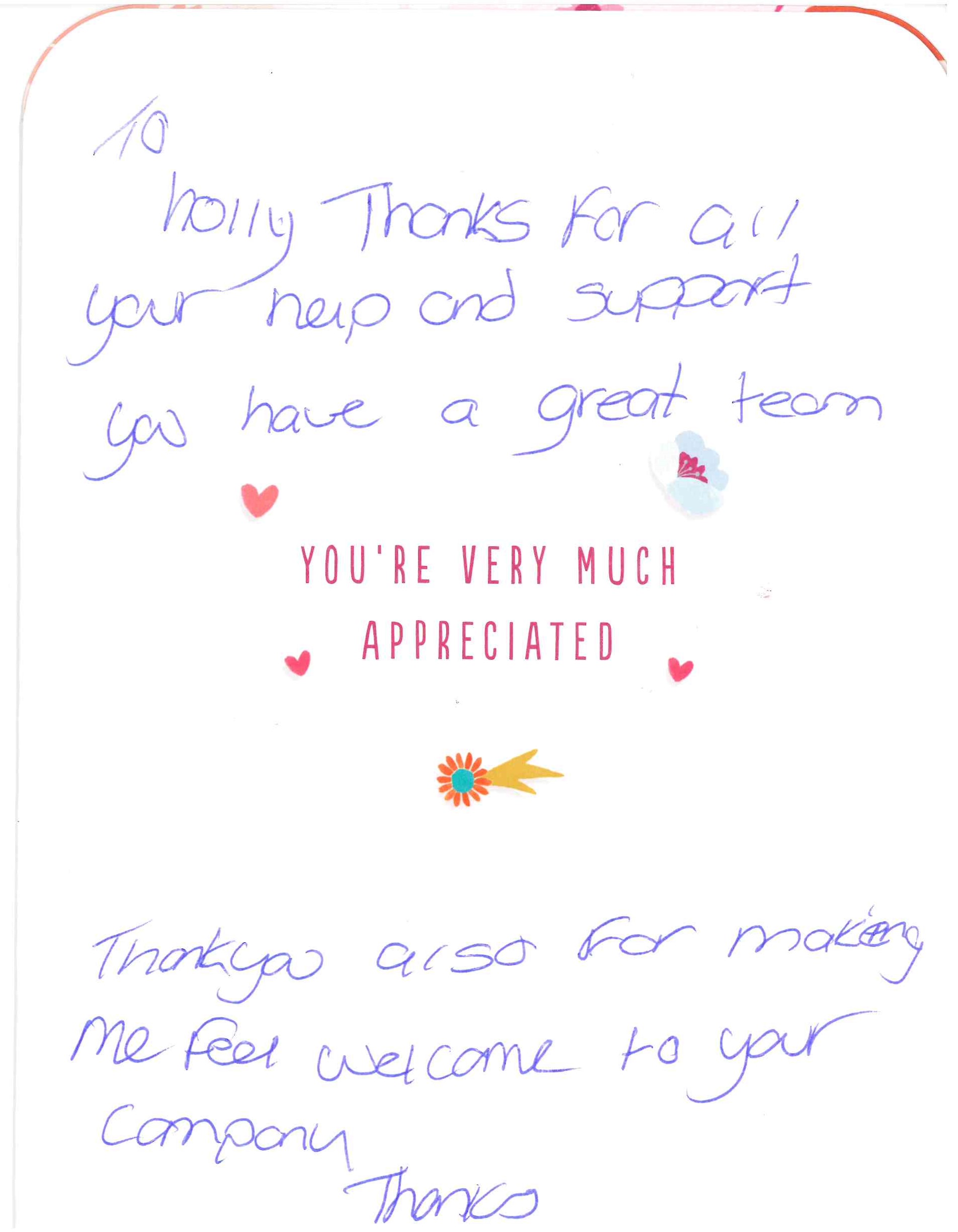Sustainability
Keymen follow the Sustainable business practices concept in line with EMAS directives:
- Require strategic decisions within the company
- Focus on the total range of innovation and organization of products, services, technologies and systems
- Honour the cyclic principle of ecology, and see this hierarchy as essential: recycle, reuse, reduce, redesign for eco-efficiency.
Examples:
- Promotion of active travel, encouraging staff to walk or use cycles during there work day
- Encourage Service Users to get involved with gardening clubs assisting with physical activity and promotion of social interaction plus the benefits of provision of fresh organic low cost food with low carbon impact.
In one of our current agreements we have implemented the following actions and activities:
- Promoting independence and reducing ‘care miles’
- Sustainable procurement
- Resource efficiency
- Preventative care services
Promoting independence and reducing ‘care miles’
Our Adult Care and Support policy is to provide services as locally as possible in order to reduce travel by both customers and staff. A financial evaluation was recently carried out to assess the relative costs of a localised versus a centralised model of care home provision, using a geographical information system to identify the most accessible locations for people who use services. As a result of this the senior management team agreed a proposal to use a de centralised model for each area we have agreements in, therefore putting offices and mangers in the specific authority area, this has been implemented.
IT systems have been put in place to allow staff to conduct meetings by video and teleconferencing as far as possible, and also to enable staff to work effectively from their local centres and homes. A recent analysis of the potential to reduce staff mileage even further through more efficient planning of care visits and the working week (for example, staff not going to their work base first thing each morning before going on visits, and also setting a minimum number of visits per day, setting aside specific days when staff stay at home to write up their reports) suggests that these approaches could yield a £80,000 per annum saving, together with the obvious benefits for reducing carbon emissions.
The implementation of FACE (Functional Analysis of the Care Environment, a care planning tool that is widely used in England and approved by the DofH
An energy-efficient pool car has been provided for one of the teams. As well as reduced carbon emissions, Cornwall saves about £600 annually with this approach compared to the mileage allowance they would have paid to staff using their own cars.
Sustainable procurement
The procurement team is introducing an ‘approved provider’ process for ASC services. In essence the process requires potential providers to submit information that enables us to give each provider a rating based on a number of criteria, including some relating to sustainability and price. Only providers that meet a minimum standard will be included within the scheme, and it also allows us to keep some control over price, ensuring that the current competitive prices that we are able to achieve through its professional procurement team are not lost as individual budgets are implemented for the units. The approved provider process sits within a broader context for sustainable procurement that is being driven at a corporate level. Key elements of this overarching approach include: a sustainable procurement policy; a sustainable procurement explanation and good practice document for staff; and an e-learning module on sustainable procurement that all staff with procurement responsibilities are actively encouraged to take.
Resource efficiency (enhanced services for reduced costs and less environmental impact)
A project to recycle clothing, cooking and engine oils, paper and magazines at another of Cornwall’s day centres for people with learning disabilities generates an annual income credit of around £1,500. The department also donates older computer equipment to charities and good causes , and obsolete sensory loss equipment is donated to developing countries.
Building management systems for heating have been installed in all significant buildings, and a biomass boiler is being assessed for possible installation at head-office Staff (‘EnReps’) carry out audits and make sure equipment is turned off when not in use.
Preventative care services
Keymen views its involvement in the provision of preventative care services as sustainable in terms of mitigating the need for costly and intensive personal and/or nursing care, improving quality of life for customers, and reducing the environmental impact.
For example:
- We supports carers by offering information, advice, support and cash payments, take up learning opportunities or leisure activities alongside their caring duties.
- We realise that Sustainable communities are built by harnessing local networks, linking people to voluntary and community preventative services.
Environmental objectives and targets against which performance is measured
Environmental indicators
These indicators are devised and identified through our work with the EMAS, we are in the process of gaining accreditation.
Once we had collected and analysed the data needed to choose appropriate key environmental performance indicators (KEPIs) so that we could track our performance. Our choice of KEPI depended on the activities and processes that the business carries out, what data is available, what can be measured and the priorities for our business and its stakeholders.
Our environmental indicators cover a number of areas including:
- Resource use – eg water, oil, gas, metals and minerals
- Emissions to air – eg greenhouse gases, dust and particles, and solvent emissions
- Emissions to water – eg metals and organic pollutants
- Emissions to land – eg pesticides, waste and metals
These are KEPI that our business use.
Absolute indicators
This type of KEPI is a stand-alone indicator that does not reference any other component of the business or process:
- Litres of water used per year
- Tonnes of waste produced per year
- Staff salary costs.
Relative indicators
In our businesses, the use of relative indicators forms the vast majority of the KEPIs.
- Kilograms of waste disposed of per staff member
- Litres of water used per member of staff.
These indicators are also expressed as a percentage.
- Percentage of waste produced that is recyclable
- Percentage of effluent reused.
Keymen works to support the ethos of Corporate Social Responsibility (CSR) through its top 3 Environmental Objectives.
1) Social Impact
Through its core functionality it is key in promoting the health and well-being of vulnerable people. This is highlighted by the following examples.
2) Resource Management
Because Keymen’s core operation brings it in touch with local communities it is patently aware that it has a huge responsibility to supporting and enhancing that environment, this is undertaken through recruiting from the local populas as it knows they have the initial skills necessary and to ensure commitment Keymen also embarks on a training and knowledge development with all staff. This is done through agreed training programmes to bring them in line with the needs of the industry and wherever identified support staff to progress there position into a career.
3) Environmental Impact
Keymen Associates Ltd is committed to maintaining as low a carbon footprint as possible, to this end we champion a paperless office, recycle office provisions and ensure that all other waste is disposed of in a proper manor. We are also proactive in the efficient use of our fuel and electrical usage, reducing carbon emissions emitted from the operations of our buildings. Whenever possible we eliminate the need for staff to travel to the office in order to further reduce our carbon emissions. As a company providing domiciliary care we are very aware that our biggest carbon contribution is by car, we therefore ensure that during the process of creating our weekly rotas that we reduce the need to drive between service users as much as possible. We can obtain this by car sharing with other work colleagues. Cycling and walking also has a low impact on our environment, so by scheduling around specific zones we can be proactive in providing work to carers who walk or cycle where appropriate, reducing further carbon emissions from car usage.
We encourage staff to work along-side the service user in recycling. Although we cannot have total control of recycling a service users waste, we offer advice, support and encouragement to those who don’t, but want to. We also help the service user with their household energy because lots of service users main concerns are cost and usage of fuel consumption. Carers can help to reduce carbon emissions from a service users home by helping them keep only the rooms they reside most in, warm i.e. closing doors, and offer advise in perhaps turning heating off in rooms that are not used, or using low energy light bulbs. Tackling fuel poverty within the elderly community will have far reaching benefits by improving peoples well-being and will also help us in reducing our contribution to climate change. We therefore offer help and advice to service users on obtaining community benefits from projects in their area such as fuel allowance, low cost insulation programmes, re-housing etc.
We work along side other organisations and professionals, raising awareness of carbon management and will share these experiences and best practices with others.
OPENING HOURS
| Week Days | 9am – 5pm |
01204 399 195
REQUEST A CALL BACK
Request a call back
Frequently Asked Questions
Why choose Mayday Homecare?
Domiciliary (or homecare) is now the preferred choice, there is nothing quite like the comfort of your own familiar surroundings and many now choose to stay in the privacy of their own home for as long as possible while receiving care.
How often can I have help at home?
We can accommodate a wide variety of requirements, from the occasional hour (or part of), up to 24 hours a day, seven days a week, 365 days a year. We are here to provide support based on your specific wishes.
We support your independent care
We provide a bespoke service designed to enable you to remain as independent as possible, we offer different levels of support, as you need it, when you need it.













